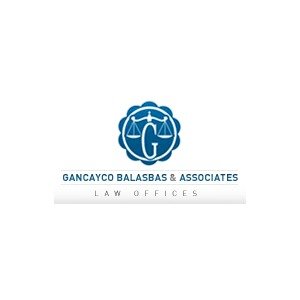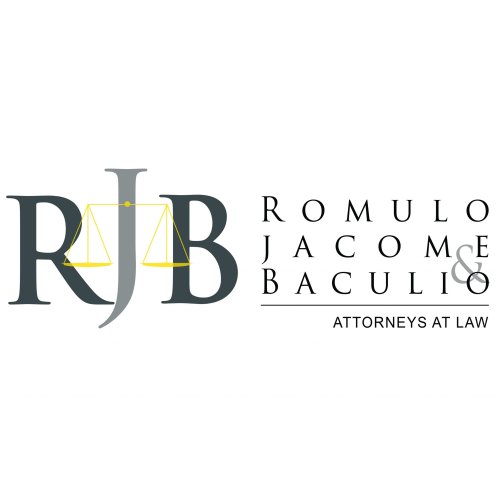Best Restructuring & Insolvency Lawyers in Manila
Share your needs with us, get contacted by law firms.
Free. Takes 2 min.
List of the best lawyers in Manila, Philippines
About Restructuring & Insolvency Law in Manila, Philippines
Restructuring and insolvency law in Manila is designed to help financially distressed individuals and businesses recover or wind down operations in an orderly and fair manner. The system balances the interests of debtors seeking relief with those of creditors aiming to collect debts. In Manila, as in the rest of the Philippines, these legal remedies are governed by specific statutes and procedures that ensure transparency, equitable treatment, and compliance with local regulations.
Why You May Need a Lawyer
Engaging a lawyer is vital in restructuring and insolvency cases due to the complex nature of the laws and potential consequences involved. Legal advice can help you:
- Avoid pitfalls in filing and navigating court or out-of-court proceedings
- Negotiate with creditors for restructuring debt or repayment plans
- Understand your rights and obligations under the law
- Protect your personal or business assets from improper claims
- Facilitate the rehabilitation of your company or maximize value for creditors in liquidation scenarios
- Prepare and file required legal documents properly
- Seek alternative solutions before resorting to formal insolvency proceedings
Local Laws Overview
The central law governing corporate and individual insolvency in the Philippines is the Financial Rehabilitation and Insolvency Act (FRIA) of 2010, also known as Republic Act No. 10142. The FRIA provides both court-supervised and out-of-court proceedings for entities facing financial distress. Key aspects include:
- Voluntary and Involuntary Proceedings: Debtors or creditors may initiate proceedings for rehabilitation or liquidation depending on the circumstances.
- Court-Supervised Rehabilitation: Companies can seek the assistance of the courts to restructure debt and operations to try and regain profitability.
- Out-of-Court Workouts: Allows financially distressed companies and their creditors to negotiate solutions without going to court, subject to meeting certain creditor approval thresholds.
- Liquidation: In situations where rehabilitation is not feasible, assets may be liquidated to pay creditors in accordance with statutory priorities.
- Stay Order: A court-issued protection which temporarily halts all collection and foreclosure actions against the debtor while proceedings are ongoing.
- Special Provisions for Banks and Financial Institutions: Separate regulations under the supervision of authorities like the Bangko Sentral ng Pilipinas may apply.
- Role of the Securities and Exchange Commission (SEC): The SEC has jurisdiction over certain rehabilitation cases, especially involving partnerships and corporations.
Frequently Asked Questions
What is the difference between rehabilitation and liquidation?
Rehabilitation is a court-supervised or out-of-court process designed to revive a financially troubled business, allowing it to carry on operations while restructuring its debts. Liquidation means winding up the debtor's affairs, selling off assets, and distributing the proceeds to creditors.
When should a company consider filing for rehabilitation?
A company should consider rehabilitation when it is unable to pay its debts as they fall due but has viable prospects of recovery if given the opportunity to restructure its obligations and operations.
What happens after a rehabilitation petition is filed?
Upon the filing of a proper rehabilitation petition, the court may issue a stay order, suspending ongoing collection efforts, foreclosure, or other actions against the debtor. The court or a designated receiver then helps oversee the rehabilitation process.
Can individuals file for insolvency in the Philippines?
Yes, individuals may file for insolvency under the FRIA, either through suspension of payments proceedings (for those with sufficient assets) or voluntary/involuntary liquidation (for those who cannot meet their obligations).
What is an out-of-court restructuring agreement (OCRA)?
An OCRA allows a debtor and its creditors to negotiate and implement a debt restructuring plan without having to go to court, provided certain creditor consent requirements are met.
How are creditors' claims prioritized during liquidation?
The law sets out a specific order of priority for payment, with secured creditors, employees, and government taxes generally taking precedence before unsecured creditors.
What protections does a stay order provide?
A stay order temporarily halts all actions or proceedings against the debtor, including enforcement of security interests, foreclosures, and collection lawsuits, giving the debtor relief and time to reorganize or liquidate assets fairly.
Do all creditors have to agree to a restructuring plan?
Not all creditors are required to agree, but a specified majority must consent for an OCRA or court-approved plan to be effective and binding on all affected parties.
Who oversees rehabilitation proceedings?
Depending on the type of business entity and proceeding, the courts or the Securities and Exchange Commission may have jurisdiction, usually with the assistance of a court-appointed rehabilitation receiver or administrator.
What should I do if I receive a demand letter or notice of insolvency?
You should promptly consult with a lawyer to assess your options, communicate with creditors, gather financial documents, and determine the most appropriate legal strategy to protect your interests.
Additional Resources
Here are local sources that may assist you regarding restructuring and insolvency matters:
- Supreme Court of the Philippines: For rules on civil procedure and insolvency case decisions
- Securities and Exchange Commission (SEC): For guidelines and forms related to corporate rehabilitation and liquidation
- Bureau of Treasury and Bangko Sentral ng Pilipinas: For regulations affecting financial institutions
- Integrated Bar of the Philippines (IBP): For finding accredited lawyers and legal aid programs
- Philippine Judicial Academy (PHILJA): For information on court processes
- Local law firms: Many offer free initial consultations or legal clinics for individuals and small businesses in distress
Next Steps
If you are facing financial difficulties or have received notices related to restructuring or insolvency, take these steps:
- Document all communications from creditors and organize your financial records
- Research basic information on your options under Philippine insolvency law
- Consult with a licensed lawyer who specializes in restructuring and insolvency
- Discuss potential alternatives to formal proceedings, such as renegotiation or out-of-court settlements
- Follow your lawyer's guidance on responding to creditor demands and fulfilling legal requirements
- Attend all required meetings or court hearings, and comply with court orders promptly
Early legal intervention is often the key to a smoother resolution in restructuring and insolvency cases. If you have questions or are unsure of your rights, seek legal advice as soon as possible to protect yourself and your business.
Lawzana helps you find the best lawyers and law firms in Manila through a curated and pre-screened list of qualified legal professionals. Our platform offers rankings and detailed profiles of attorneys and law firms, allowing you to compare based on practice areas, including Restructuring & Insolvency, experience, and client feedback.
Each profile includes a description of the firm's areas of practice, client reviews, team members and partners, year of establishment, spoken languages, office locations, contact information, social media presence, and any published articles or resources. Most firms on our platform speak English and are experienced in both local and international legal matters.
Get a quote from top-rated law firms in Manila, Philippines — quickly, securely, and without unnecessary hassle.
Disclaimer:
The information provided on this page is for general informational purposes only and does not constitute legal advice. While we strive to ensure the accuracy and relevance of the content, legal information may change over time, and interpretations of the law can vary. You should always consult with a qualified legal professional for advice specific to your situation.
We disclaim all liability for actions taken or not taken based on the content of this page. If you believe any information is incorrect or outdated, please contact us, and we will review and update it where appropriate.

















